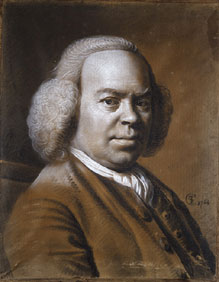“Extract of a Letter from Joseph Warren to John Scholly Esq:r
Dated Watertown May 17:th 1775
Colonel Castor [Arnold?] is now giving his Account in the Congress of the Reduction of the Fort Ticonderoga by a Body of Troops from Connecticut and the Western parts of this Province, Commanded by himself and Colonel Allen. The Garrison were surprised and therefore made very little resistance; The Prisoners, one Captain, one Lieutenant, and about Forty Privates, are brought down to Hartford; Also Major Skeen, his Mother, Wife and Sister, with a number of Soldiers and others, to the Amount of about 60 or 70 Persons taken at a Place called Skeensborough, are on their way thether. Thus a War has begun, which I have frequently said to you and others, would if not timely prevented, overturn the British Empire, ut I hope after a full conviction both of our Ability and resolution to Maintain our rights, Britain will act with that Wisdom which it is so absolutely Necessary for her preservation; this I most heartily wish, as I feel a warm Affection still for the Parent state.
[Joseph Warren]
N.B:
No lives were lost in the taking of Ticonderoga”
Source: Extract of a Letter from Joseph Warren to John Scholly [sic] Esq:r and Enclosed by General Thomas Gage in a Letter to the Earl of Dartmouth, Whitehall, London. In Thomas Gage Papers, Ann Arbor: Clements Library, University of Michigan. British Series, Volume 29. This extract served as an enclosure in Gage’s reporting to Lord Dartmouth on the loss of Fort Ticonderoga to the Patriots under Ethan Allen and Benedict Arnold. Though Gage most likely met Scollay on a number of occasions during the Siege, he or his military secretary misspelled the Scollay surname.
Commentary: Though addressed to John Scollay, a Patriot who stayed in occupied Boston and continued as Chief Selectman of the Town, Joseph Warren doubtless intended this information to be shared with Governor General Thomas Gage. It was not good news for the besieged British Army and must have been embarrassing for Gage to have to share it with his Tory ministerial superiors. Warren’s careful choice of words contains explicit information on captured officers, thereby insuring that the letter would be accepted as credible, and contains a succinct statement of Patriotic resolve.
Just a few weeks earlier, Joseph Warren had encouraged Benedict Arnold on his quest for the cannon of Ticonderoga. He influenced the Massachusetts Provincial Congress’ Committee of Safety to obtain a Massachusetts colonel’s commission, money, scarce gunpowder and bayonets for Arnold’s expedition.
Warrens fiancé Miss Mercy Scollay’s father, John Scollay was also Warren’s anticipated father-in-law.
The 1764 pastel of John Scollay is by John Singleton Copley. It resides at the Pennsylvania Academy of Fine Arts in Philadelphia.

 Follow
Follow